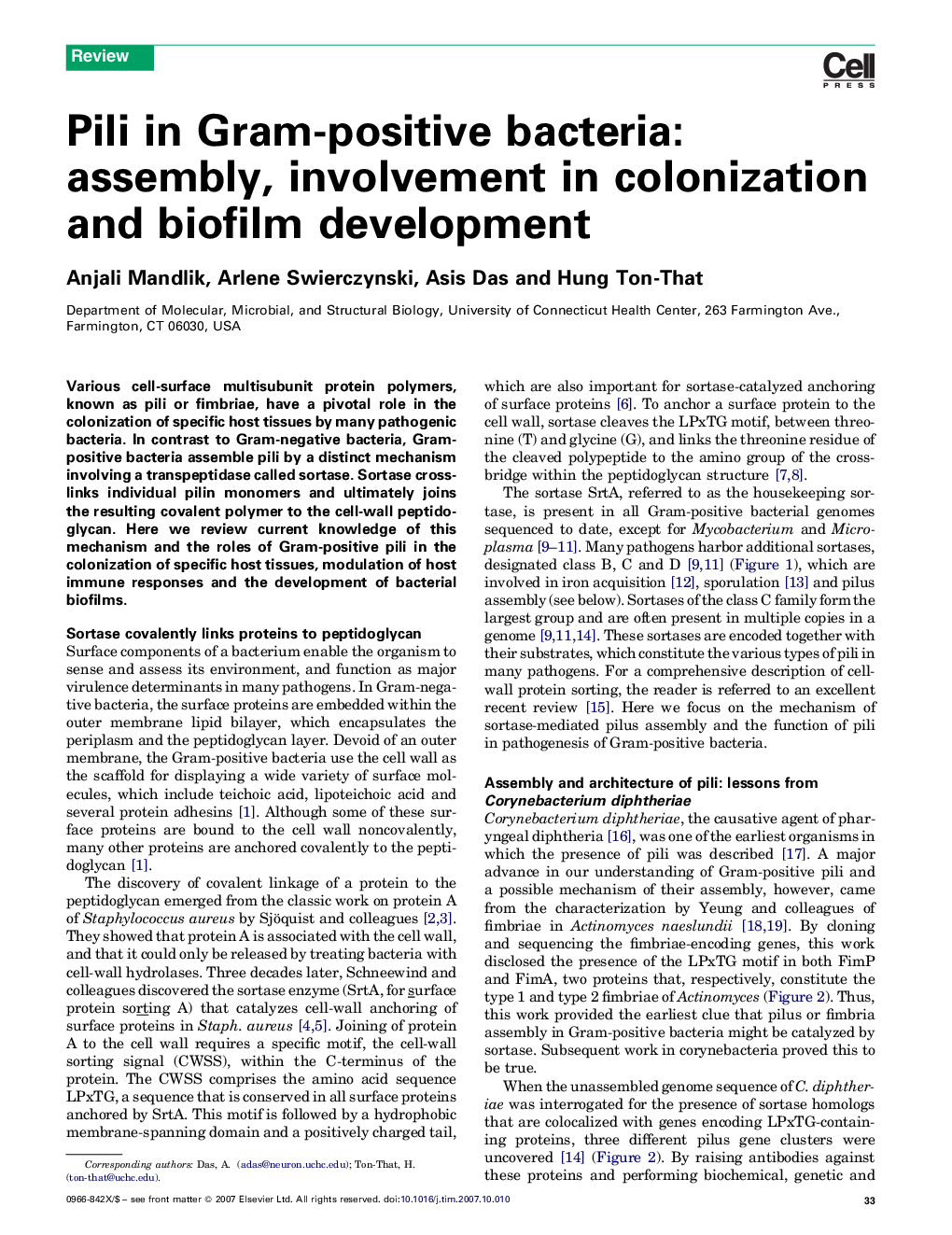| Article ID | Journal | Published Year | Pages | File Type |
|---|---|---|---|---|
| 3422810 | Trends in Microbiology | 2008 | 8 Pages |
Abstract
Various cell-surface multisubunit protein polymers, known as pili or fimbriae, have a pivotal role in the colonization of specific host tissues by many pathogenic bacteria. In contrast to Gram-negative bacteria, Gram-positive bacteria assemble pili by a distinct mechanism involving a transpeptidase called sortase. Sortase crosslinks individual pilin monomers and ultimately joins the resulting covalent polymer to the cell-wall peptidoglycan. Here we review current knowledge of this mechanism and the roles of Gram-positive pili in the colonization of specific host tissues, modulation of host immune responses and the development of bacterial biofilms.
Related Topics
Life Sciences
Immunology and Microbiology
Microbiology
Authors
Anjali Mandlik, Arlene Swierczynski, Asis Das, Hung Ton-That,
